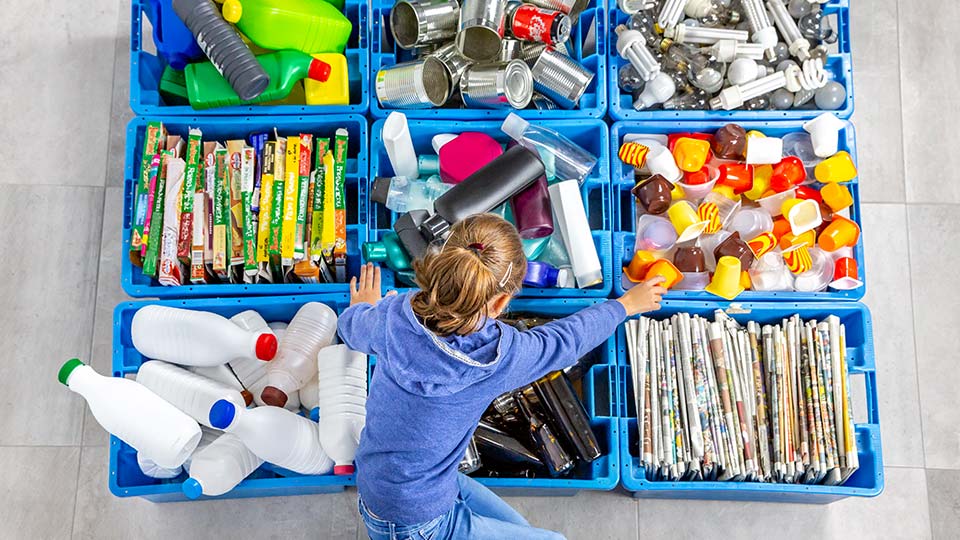
Our kids learn a lot of what they know at school, so there’s no better place to teach the next generation about the importance of recycling.
Young people discover how to read, write, count and more at school, but recycling is one of the best lessons we can teach them.
Recycling and sustainability are ideas that can be taught early on, whether it’s in a lesson plan or not.
Encouraging youngsters to put paper, bottles and cans in the recycling bin can start a life-long journey of recycling that will impact how much waste is recovered and how much ends up in landfill.
Here are three reasons why schools are crucial to educating children about recycling:
1. Schools teach habits that last
The earlier we can teach our children about recycling, the more likely those practices will stick.
A school recycling program is easy to establish, with plenty of resources available to support your efforts.
Schools are also great places for educating young people about lesser-known recyclable products such as batteries, electronic waste and light bulbs.
Batteries, e-waste and light bulbs can contain hazardous materials like mercury that need to be recycled to prevent environmental and human health disasters.
Recycling items containing mercury is as easy as dropping them off at your local council or certain retail stores — you can find your closest collection point at RecyclingNearYou.com.au.
2. Schools teach in a hands-on way
Sometimes the best way to learn is to use your hands and schools are fantastic places for putting theory into practice.
Lessons can begin in the classroom by encouraging kids to throw scrap paper in the recycling bin and continue on at lunch time by reminding youngsters to throw recyclable plastics containers in the right bin.
When a calculator dies or the classroom printer runs out of ink, children can set those calculator batteries and the used printer cartridge aside until it’s time to take them to the collection spot.
The same goes for mobile phones, laptops, tablets and any other electronics that reach the end of their useful lives.
The simple action of dropping e-waste, batteries and lights at dedicated collection spots rather than putting them in the general rubbish bin can help reduce the millions of mercury-containing items that end up in Australian landfills every year.
3. Schools allow children to learn with peers
While teachers play a role in educating kids about recycling, school friends can really make a difference.
As kids grow up, school peers can be hugely influential and reinforce positive behaviours like recycling better than teachers or family members can.
If you think back to all the cringeworthy fashions and fads from your school days, it’s likely that you just wanted to impress your friends at the time.
Get your school recycling today
Clearly, schools can have a big impact on the future of recycling and the best way to encourage these behaviours is to set up a school-wide recycling program.
If your school is looking to recycle its lighting, battery and electronic waste, Ecocycle can make it easy to run a recycling program.
If you want to learn more, fill in the form below or give us a call on 1300 32 62 92 and speak to one of our recycling experts.
Source: REcycling - ecocycle.com.au



